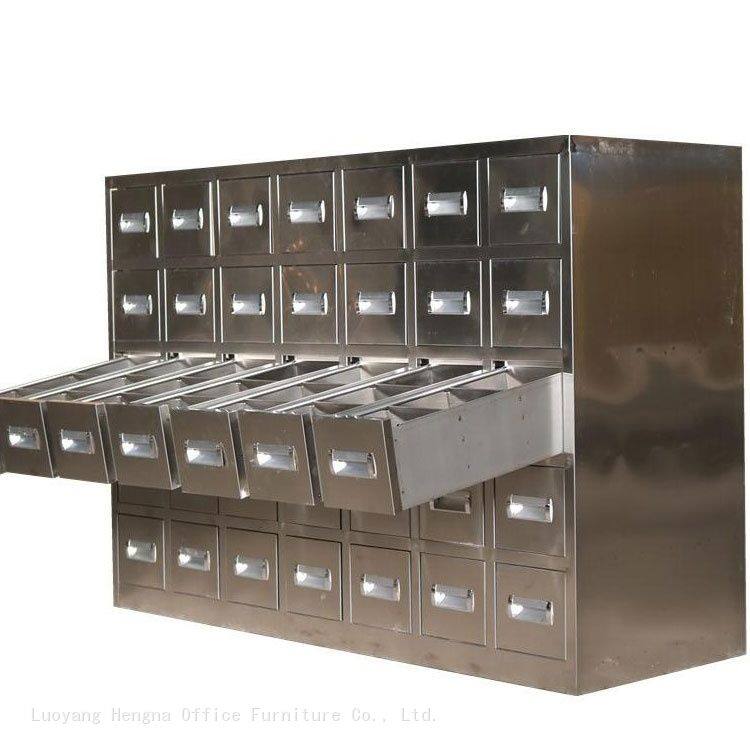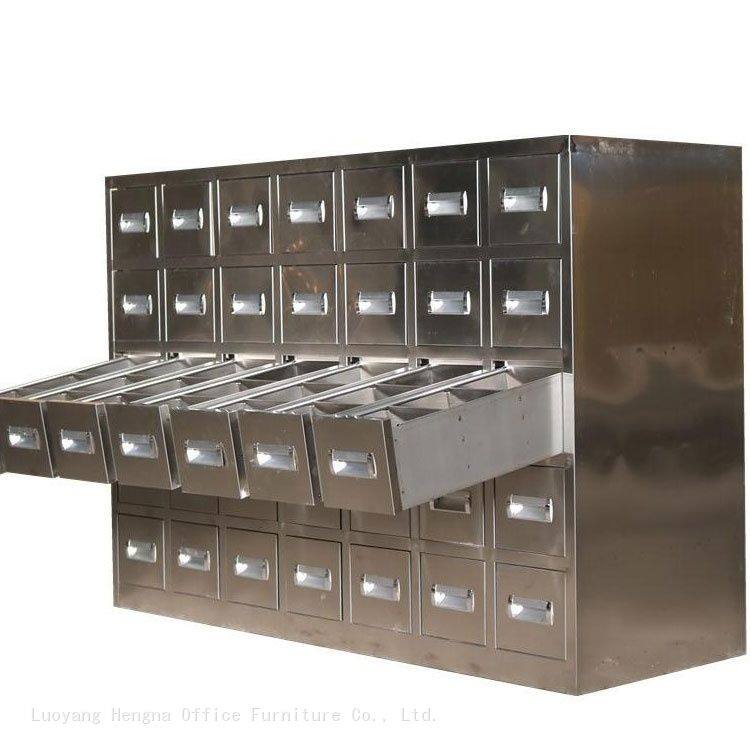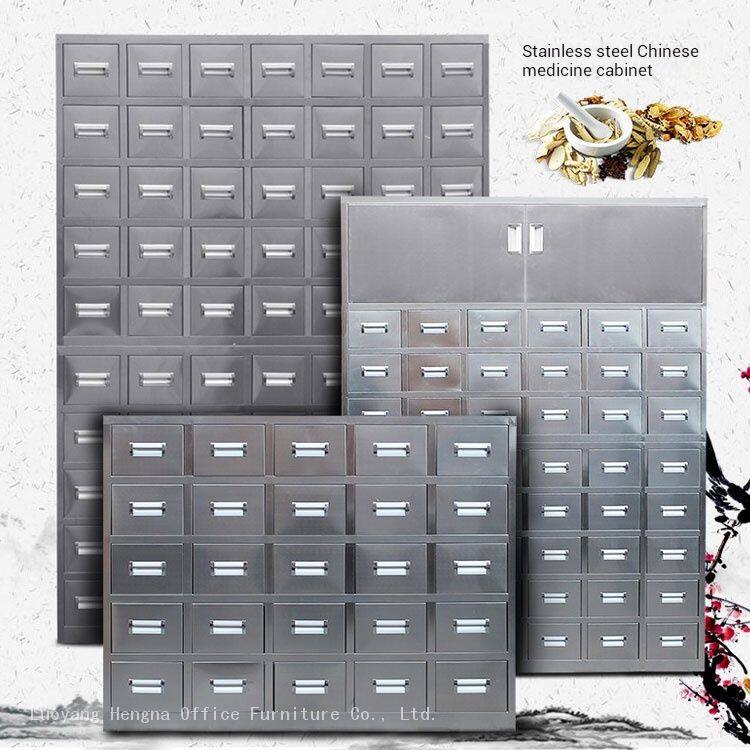-
 Sarah
Hi there! Welcome to my shop. Let me know if you have any questions.
Sarah
Hi there! Welcome to my shop. Let me know if you have any questions.
Your message has exceeded the limit.

Key Considerations When Buying Stainless Steel Herb Cabinets
2025-10-25 16:08:50
When it comes to storing herbs, spices, and botanical ingredients, the choice of storage solution can significantly impact both functionality and preservation. Stainless steel herb cabinets have emerged as the preferred option for commercial kitchens, laboratories, pharmacies, and even discerning home cooks who demand quality and durability. However, with numerous options available in the market, selecting the perfect cabinet requires careful consideration of several critical factors. This comprehensive guide will walk you through the essential considerations when purchasing stainless steel herb cabinets, ensuring you make an informed decision that balances quality, functionality, and value.
1. Material Quality: The Foundation of Durability
The grade of stainless steel used in herb cabinet construction directly correlates with its longevity and performance. Not all stainless steel is created equal, and understanding the differences is crucial:
Stainless Steel Grades Explained
304 Stainless Steel: The industry standard for most applications, offering excellent corrosion resistance and durability
316 Stainless Steel: Superior corrosion resistance, ideal for environments with high humidity or chemical exposure
201 Stainless Steel: Lower grade with reduced corrosion resistance, suitable only for dry environments

Construction Quality Indicators
Welded Joints: Superior to riveted connections for structural integrity
Gauge Thickness: 14-18 gauge steel provides optimal balance between strength and weight
Finish Quality: Smooth, consistent surfaces prevent bacterial growth and facilitate cleaning
2. Hygiene and Cleanability: Non-Negotiable for Professional Settings
For environments where herbs are stored for culinary, medicinal, or research purposes, hygiene is paramount. Stainless steel offers inherent advantages, but design features can enhance or compromise these benefits:
Essential Hygiene Features
Non-porous Surfaces: Prevent bacterial absorption and facilitate thorough cleaning
Seamless Construction: Eliminates crevices where contaminants can accumulate
Rounded Corners: Reduce areas where debris can collect and improve safety
Cleaning Considerations
Chemical Resistance: Withstands harsh cleaning agents without degradation
Stain Resistance: Maintains appearance despite frequent cleaning
Accessibility: Design allows for easy access to all surfaces during cleaning
3. Storage Capacity and Organization: Maximizing Efficiency
The primary function of any herb cabinet is storage, making capacity and organization critical considerations:
Capacity Planning
| Cabinet Size | Typical Drawer Count | Ideal Use Case |
|---|---|---|
| Small (12-24") | 6-12 drawers | Home kitchens, small clinics |
| Medium (24-36") | 12-24 drawers | Restaurants, medium labs |
| Large (36"+) | 24+ drawers | Industrial kitchens, research facilities |
Organization Features
Adjustable Dividers: Allow customization of compartment sizes
Removable Trays: Facilitate easy cleaning and restocking
Labeling Systems: Enable clear identification of contents
Modular Design: Permit expansion as storage needs grow
4. Drawer Mechanics: Ensuring Smooth Operation
The functionality of drawers significantly impacts user experience and cabinet longevity:
Drawer Slide Types
Full-Extension Slides: Provide complete access to drawer contents
Soft-Close Mechanisms: Prevent slamming and reduce wear
Ball-Bearing Slides: Offer smooth operation even with heavy loads
Ergonomic Considerations
Handle Design: Comfortable grips reduce strain during frequent use
Weight Capacity: Adequate support for typical herb storage quantities
Operation Noise: Quiet mechanisms maintain professional environments
5. Size and Installation: Perfect Fit for Your Space
Proper measurement and planning are essential to ensure your herb cabinet fits seamlessly into your workspace:
Measurement Checklist
[ ] Available width, height, and depth of installation space
[ ] Clearance requirements for drawer extension
[ ] Door and pathway clearance for delivery and installation
[ ] Ventilation requirements around the cabinet
Installation Options
Freestanding Units: Versatile placement, easy to relocate
Wall-Mounted Cabinets: Save floor space, ideal for smaller areas
Under-Counter Models: Utilize otherwise wasted space
Mobile Units: Casters enable flexibility in dynamic environments

6. Aesthetic Considerations: Form Meets Function
While functionality is paramount, the visual appeal of your herb cabinet contributes to the overall ambiance of your space:
Finish Options
Brushed Stainless Steel: Hides fingerprints and scratches, professional appearance
Polished Stainless Steel: Reflective surface, modern aesthetic
Powder-Coated Finishes: Color options for brand coordination or design preferences
Design Elements
Door Styles: Solid, glass, or perforated for visibility
Hardware Options: Matching or contrasting handles and pulls
Custom Branding: Logo engraving or custom colors for commercial applications
Value Optimization Strategies
Prioritize features critical to your specific application
Consider long-term cost of ownership rather than initial purchase price
Evaluate warranty coverage as part of overall value
Explore bulk purchasing discounts for multiple units
8. Brand Reputation and Warranty: Ensuring Reliability
The manufacturer’s reputation and warranty terms provide insight into product quality and company confidence:
Evaluating Brand Reputation
Industry Experience: Established manufacturers typically offer superior products
Customer Reviews: Real-world feedback on performance and durability
Professional Endorsements: Recommendations from industry associations
Certifications: Compliance with relevant industry standards
Warranty Considerations
Coverage Duration: Longer terms indicate greater confidence in product longevity
Scope of Coverage: Comprehensive warranties protect against defects and premature wear
Service Accessibility: Responsive customer support for warranty claims
Transferability: Value-added feature for resale scenarios
Selecting the right stainless steel herb cabinet requires careful consideration of multiple factors, from material quality and hygiene features to storage capacity and brand reputation. By evaluating these key considerations against your specific needs and budget, you can make an informed investment that will provide reliable service for years to come.
Remember that the cheapest option is rarely the most economical in the long run. Prioritize quality construction, appropriate features, and reputable manufacturers to ensure your herb storage solution meets both current and future needs. Whether outfitting a commercial kitchen, laboratory, or home pantry, the right stainless steel herb cabinet will enhance organization, improve hygiene, and protect your valuable herb inventory.
Take the time to thoroughly research options, request samples when possible, and consult with suppliers about your specific requirements. With careful consideration and planning, you’ll select a stainless steel herb cabinet that delivers exceptional value and performance for your unique application.
Tags: Stainless Steel Herb Cabinets, Key Considerations Stainless Steel Herb Cabinets

